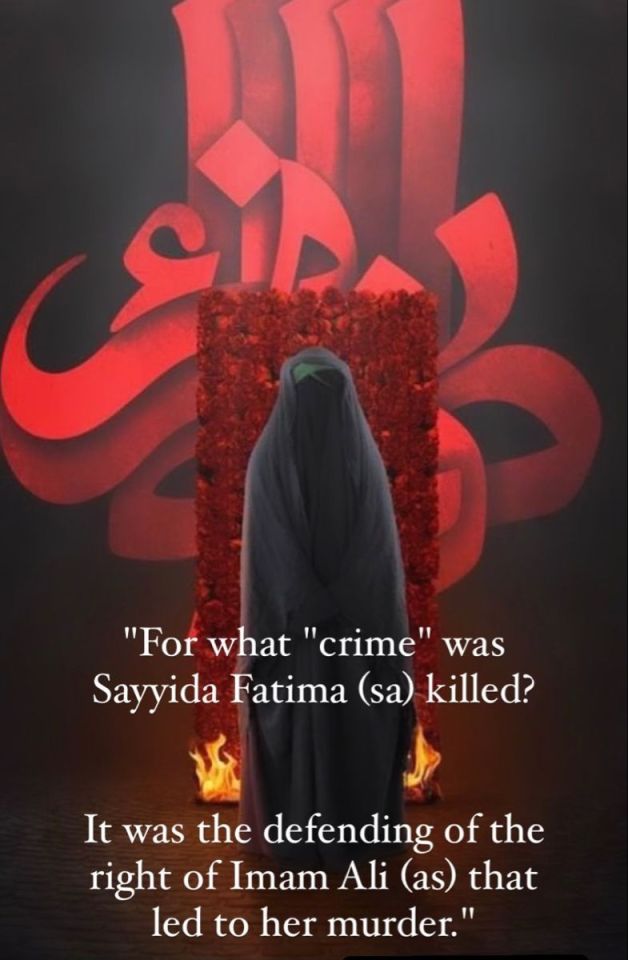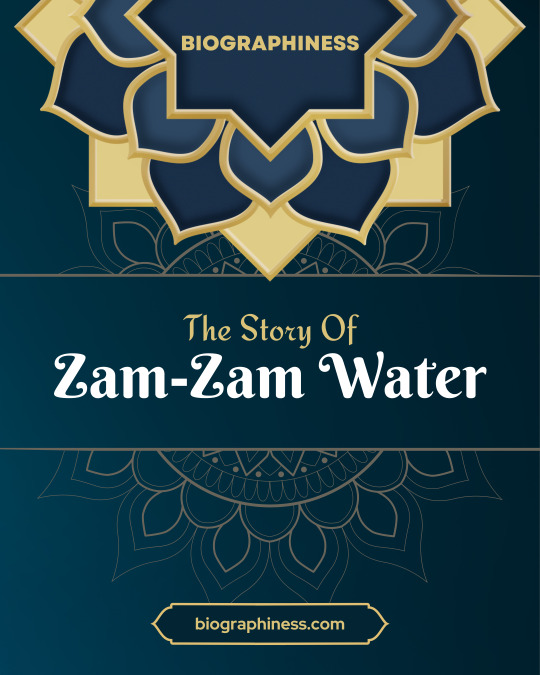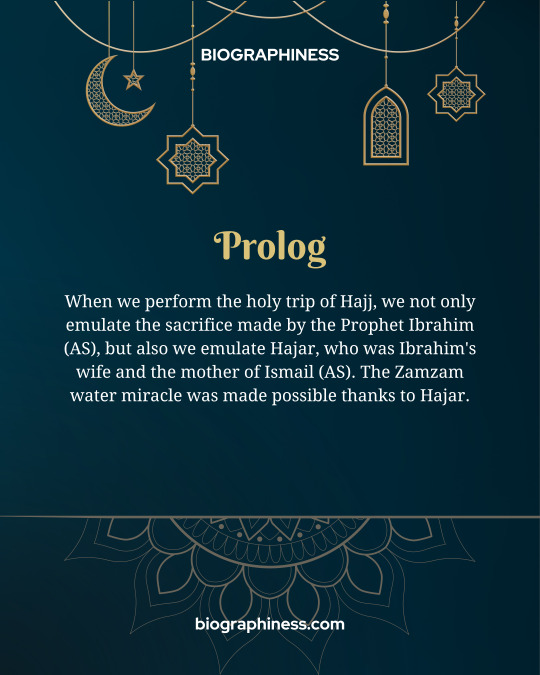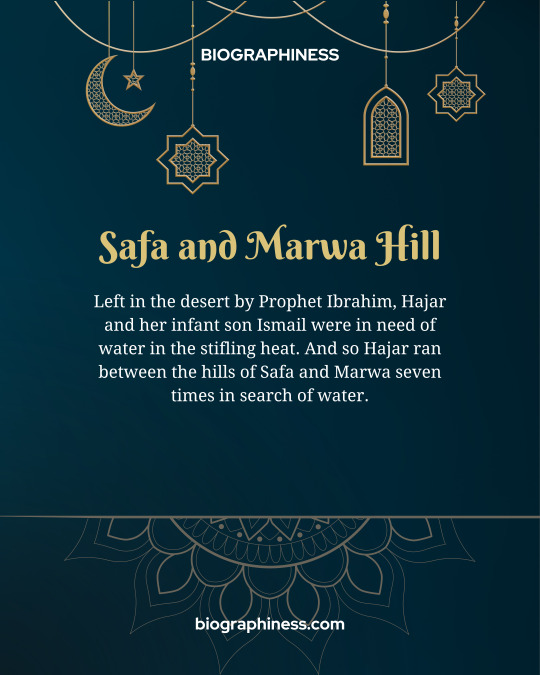#IslamicHistory
Explore tagged Tumblr posts
Text
Unveiling the Real Story: How Key Figures Played a Role in the Early Betrayal of Islam

The story of Islam’s birth is woven with extraordinary sacrifices, fierce opposition, and, ultimately, a complex legacy that many believe has been obscured by history. While the Prophet Muhammad (SAWW) and his close family, the Ahl al-Bayt, faced relentless hardship, the behavior of some early converts raises profound questions about loyalty and intentions. In particular, we see a sharp divide between the sacrifices of the Prophet’s family, including Lady Khadija (SA) and Imam Ali (AS), and the contrasting path taken by future leaders who would shape Islam’s political landscape.
Early Opposition to Islam and the Prophet’s Nearest Supporters
As the Prophet Muhammad (SAWW) began spreading his message, he encountered fierce resistance from the Quraysh, who controlled Makkah’s political and economic spheres. Only a few supporters stood by him unwaveringly, most notably his wife, Lady Khadija (SA), and his young cousin, Imam Ali (AS). These figures were not only the first to believe in his message but also the first to sacrifice everything they had to see it succeed. In contrast, key figures like Abu Bakr, Umar, and Uthman, while outwardly accepting Islam, seem to have faced far less opposition, enjoying protection from influential families even as true believers suffered persecution and death.
Lady Khadija: The True Mohsin of Islam
Lady Khadija’s immediate acceptance of Islam upon the Prophet’s revelation set the standard for devotion. Her role extended far beyond emotional support; she provided her entire fortune to shield the Prophet from his enemies and facilitate the spread of his message. Her wealth became a shield for the early Muslim community, funding campaigns, sheltering followers, and even buying the Prophet (SAWW) and his supporters much-needed peace amid hostile conditions.
During the intense Quraysh-imposed boycott on Banu Hashim, Khadija’s last resources were spent ensuring the community could survive in the barren valley of Shab e Abu Talib. She endured starvation, thirst, and deprivation, ultimately sacrificing her own life. This selflessness has earned her the title of “Mohsin of Islam” – the true benefactor whose generosity and faith provided Islam with the foundation it needed to endure.
In stark contrast, many of the prominent early converts, including the first three caliphs, seemed to experience a level of immunity from the Quraysh’s wrath. Figures such as Abu Bakr, Umar, and Uthman are notably absent from records of persecution and torture. Their alliances with Qurayshi families allowed them to convert without fear, raising questions about their motivations and long-term intentions.
The Persecution of True Believers Outside Banu Hashim
The divide between true believers and those protected by political affiliations is made starkly clear through the persecution of early Muslims like Ammar bin Yasir, whose parents were killed for their faith. His mother, Sumayyah, and father, Yasir, suffered brutal deaths, serving as powerful examples of the sacrifices endured by the Prophet’s early followers. The torture and killing of Banu Hashim supporters, along with the exiling of others to Abyssinia, stand in contrast to the privileged positions of certain early converts, whose families protected them from harm.
Prophet Muhammad (SAWW) received little support outside his family and close followers. The strength of Islam’s early community lay primarily within Banu Hashim, bolstered by a handful of individuals who accepted suffering in order to preserve the message. Lady Khadija’s support and Imam Ali’s courage in defending the Prophet under life-threatening conditions reflect an unwavering loyalty unmatched by those who were later poised to assume leadership of the Muslim community.
Political Calculations and Strategic Marriages: The Long-Term Ambitions of the First Caliphs
As Islam gained influence, these individuals, particularly Abu Bakr and Umar, positioned themselves strategically. Through marriage alliances with the Prophet, they sought both legitimacy and a lasting foothold in the growing Muslim community. The marriages of their daughters to the Prophet seem not to have been acts of devotion but rather calculated steps, part of a broader ambition to gain influence within the new Islamic order. These connections afforded them both prestige and an implicit claim to power—a plan that would reveal itself fully only after the Prophet’s passing.
The Prophet’s Passing and the Power Struggle that Followed
After the Prophet’s death, the struggle for leadership culminated in a sudden shift away from the Ahl al-Bayt, despite the Prophet’s repeated declarations of Imam Ali (AS) as his chosen successor. The Prophet’s family, already reeling from his loss, now faced betrayal from those who had once stood by them, or so it seemed. Abu Bakr’s swift assumption of leadership, followed by Umar and Uthman, effectively sidelined Imam Ali (AS) and the Prophet’s family from the authority that had been rightfully theirs.
This power struggle took a devastating toll on the Ahl al-Bayt, culminating in the death of Lady Fatima (SA) under suspicious circumstances. Her pleas for justice went unheard, her rights denied, and her final days marked by grief and pain inflicted by those who had once pledged loyalty to her father.
The Lasting Legacy of Lady Khadija’s Sacrifice
In comparison, Lady Khadija’s legacy shines as a beacon of true sacrifice and faith. Her contributions, both material and emotional, became the bedrock of early Islam. The lasting gratitude the Prophet felt for her was evident throughout his life; he would often remember her kindness, calling her the “best of women.” Lady Khadija’s sacrifices, alongside those of the Prophet’s family, continue to stand in contrast to the privileged lives of others who would later wield power in the Muslim community.
Her example reveals a clear divide in motives: while some were willing to give everything for Islam, others capitalized on its rise without enduring its hardships. Lady Khadija’s story serves as a powerful reminder that the truest believers are those who sacrifice without expectation, embodying the values of justice, mercy, and selflessness that the Prophet Muhammad (SAWW) cherished.
Conclusion: A Legacy of Betrayal and the Courage of the Ahl al-Bayt
The sacrifices of Lady Khadija, Imam Ali, and Lady Fatima underscore a dedication to Islam that transcends political gain—a dedication grounded in love, loyalty, and faith. These were the qualities that sustained Islam in its infancy, making their betrayal by certain early figures all the more painful. Despite the best efforts to erase these truths from history, the actions and words of the Ahl al-Bayt continue to testify to their rightful place and their sacrifices for Islam. As readers, we are left to question: if the true believers sacrificed everything, what was it that others were protecting?
#LadyKhadija#MohsinOfIslam#IslamicHistory#ProphetMuhammad#Sacrifice#EarlyMuslims#ShiaIslam#DivineProtection#SupportOfTheProphet#Khadija#IslamicHeroines#HistoryOfIslam#AhlulBayt#TruthAndSacrifice#imam ali#literature#maula ali#shia#shia islam#ya ali maddad#artists on tumblr#pandora's vault#pandora's box#pandora#SacredGrief#IslamicElegy#LightOfIslam#ShiaTradition#InjusticeInHistory#TruthOfFatimiyya
24 notes
·
View notes
Text
Allah ﷻ says:
Indeed Allah has chosen for you this religion, so do not die except while you are a Muslim.
[Al-Baqarah ~ 2:132]
12 notes
·
View notes
Text
youtube
#SurahAnNisa#JusticeInIslam#DefendTheOppressed#IslamicTeachings#OppressionAndFaith#FightForJustice#TaghutExplained#QuranicEthics#PeaceAndJustice#IslamAndCompassion#DivineCommand#StandWithTheWeak#IslamicHistory#QuranicLessons#FaithAgainstOppression#MoralResponsibility#JihadExplained#StopOppression#WeaknessOfSatan#Youtube
0 notes
Link
In this video, we explore the greatness and virtues of Hazrat Fatima al-Zahra (رضی اللہ عنہا), the beloved daughter of Prophet Mohammad ﷺ and the leader of the women of Paradise. Her life was a beacon of piety, patience, and devotion. Discover: - Events of her birth and upbringing - Her profound love for the Prophet ﷺ - Her elevated status and virtues in light of Islamic teachings #sultanulashiqeen #حضرت_فاطمہ_رضی_اللہ_عنہا #فضائل_فاطمہ_الزہرا #سیرت_فاطمہ_زہرا #جنتی_خواتین_کی_سردار #رسول_اللہ_کی_بیٹی #اسلامی_تاریخ #IslamicHistory #HazratFatimaRA #VirtuesOfFatima #DaughterOfProphetMuhammad #WomenOfParadise #IslamicInspiration
#sultanulashiqeen#islamichistory#hazratfatimara#virtuesoffatima#islam#womenofparadise#daughterofprophetmohammad
0 notes
Text
#MughalEmpire#Babur#IndianHistory#MughalDynasty#HistoryOfIndia#BattleOfPanipat#Baburnama#MedievalHistory#IslamicHistory#CulturalHeritage#MughalArchitecture#HistoricalFigures#SouthAsianHistory#EmpireBuilding#TimuridDynasty#AkbarTheGreat#Gaur#HistoricalLegacy
0 notes
Text
youtube
In the towering peaks and verdant valleys of the North Caucasus lies Chechnya, a land where Islam found fertile ground among proud mountain peoples. But the story of how Islam came to dominate Chechen life is one of gradual transformation, beginning in the 8th century when Arab armies first reached the gates of Derbent.
#IslamInChechnya#SpreadOfIslam#IslamicHistory#IslamInTheCaucasus#ChechenIslam#IslamicCulture#SufismInChechnya#ChechnyaAndIslam#ChechenMuslims#islamicheritage#Youtube
0 notes
Text
A Guide to Islamic History Books in Urdu

Islamic history spans over 1,400 years and is filled with monumental events, dynamic civilizations, influential scholars, and remarkable leaders who shaped not only the Muslim world but global history. For Urdu-speaking readers, the rich tapestry of Islamic history is available in a wide range of books that offer deep insights into the lives, ideas, and achievements of those who have shaped the course of history.
The study of Islamic history in Urdu provides an accessible and culturally relevant approach to understanding this vast subject. Whether you are a student, a history enthusiast, or someone seeking to gain a deeper appreciation of Islamic heritage, these books serve as invaluable resources.
Why Read Islamic History in Urdu?
Urdu, as a language, has a long and rich tradition of scholarship. It bridges the gap between classical Islamic knowledge and modern understanding, especially for readers in South Asia. Here’s why studying Islamic history in Urdu is beneficial:
Accessibility: For millions of Urdu speakers, these books make the complex and vast history of Islam easier to grasp in their native tongue.
Cultural Connection: Islamic history is intertwined with the history and culture of South Asia. Understanding it in Urdu offers a more nuanced and locally relevant perspective.
Rich Scholarly Tradition: Many renowned scholars from the subcontinent have contributed significantly to the field of Islamic history, and their works in Urdu are treasures for anyone keen on exploring the subject in depth.
Key Themes in Islamic History
Islamic history is incredibly diverse, covering several critical periods, empires, intellectual movements, and cultural developments. The main themes explored in Urdu history books include:
The Life of Prophet Muhammad (PBUH): A closer look at the Prophet’s biography (Seerah), his mission, leadership, and the early years of Islam.
The Caliphates and Dynasties: Books on the Rashidun, Umayyad, Abbasid, and Ottoman Caliphates provide an understanding of Islamic governance and cultural expansion.
Medieval Islamic Empires: The Delhi Sultanate, the Mughal Empire, and other Muslim dynasties are explored in their political, military, and cultural context.
Philosophy, Science, and Literature: Many historical works highlight the intellectual contributions of Muslim scholars in fields like medicine, astronomy, mathematics, and philosophy.
Colonialism and Modernity: A growing number of books examine the impact of colonialism on the Muslim world and the subsequent struggle for independence.
Noteworthy Islamic History Books in Urdu
Here’s a selection of some key Islamic history books in Urdu that have made a significant impact on readers and scholars alike. These works cover everything from early Islamic history to the cultural and intellectual contributions of Muslim civilizations.
1. "Tarikh al-Tabari" (The History of al-Tabari) – By Muhammad ibn Jarir al-Tabari
This monumental work by the Persian historian al-Tabari is a critical primary source for early Islamic history. While originally written in Arabic, it has been translated into Urdu and remains an essential text for anyone studying the history of the Prophet's companions, the early caliphates, and Islamic civilization up to the Abbasid period.
2. "Seerah Ibn Hisham" (The Life of Muhammad) – By Ibn Hisham
This classic biography of Prophet Muhammad (PBUH) is one of the most important texts in Islamic literature. The Urdu translation of Ibn Hisham's work provides a detailed and intimate account of the Prophet’s life, his character, and the early years of Islam.
3. "Tareekh-i-Islam-i-Hind" (History of Islam in India) – By Siraj-ud-Din Ali Khan Arzu
A significant work on the history of Islam in the Indian subcontinent, Arzu’s book covers the establishment of Muslim rule, the Delhi Sultanate, and the Mughal Empire. This is an essential text for anyone interested in how Islam became deeply rooted in South Asia.
4. "Tareekh-i-Mughul" (History of the Mughals) – By Khwaja Ahmad Faruqi
This well-researched book on the Mughal Empire offers a thorough analysis of the rise, golden age, and eventual decline of one of the most influential empires in Islamic history. Written in a clear and engaging style, this book is a must-read for anyone interested in the Mughal period.
5. "Tareekh-i-Usmaniyah" (History of the Ottomans) – By Dr. Muhammad Iqbal
The Ottoman Empire is one of the most important and enduring empires in Islamic history. Dr. Iqbal’s work on the Ottomans explores the empire’s political, military, and cultural achievements. His reflections also touch on its significance in the context of Islamic thought and its eventual decline.
6. "Tareekh-i-Islam" (History of Islam) – By Maulana Shibli Nomani
One of the most comprehensive accounts of the history of Islam from its inception to the modern period, Maulana Shibli Nomani’s book offers an in-depth analysis of key events, figures, and movements in Islamic history. His scholarly approach makes this an essential read for anyone serious about the subject.
7. "Fikr-o-Tafseer Ka Itihas" (History of Islamic Thought and Tafseer) – By Dr. Muhammad Iqbal
In this work, Dr. Iqbal traces the development of Islamic philosophy and interpretation (Tafseer) from the early centuries of Islam. His philosophical insights offer readers a profound understanding of how Islamic thought evolved in response to political, social, and intellectual challenges.
8. "Tareekh-i-Ahl-i-Bait" (History of the Family of the Prophet) – By Syed Muhammad Raza Rizvi
This book delves into the history and contributions of the Ahl-i-Bait, the family of Prophet Muhammad (PBUH). It explores their political, spiritual, and social roles during the early Islamic period, providing a nuanced understanding of their significance in Islamic history.
9. "Tareekh-i-Umayyah" (History of the Umayyads) – By Dr. Muhammad Iqbal
This book offers a detailed examination of the Umayyad dynasty, focusing on their political, military, and cultural influence on the early Islamic empire. Dr. Iqbal’s analysis is both historical and philosophical, making it a valuable resource for understanding the complexities of early Islamic governance.
------------------------------------------------------------------------------
The history of Islam is a vast and multifaceted subject that spans continents and centuries. Islamic history books in Urdu provide readers with a comprehensive understanding of this rich heritage, from the life of the Prophet Muhammad (PBUH) to the political, cultural, and intellectual achievements of Muslim civilizations across the world.
Whether you're looking to explore the rise of Islamic empires, the contributions of Muslim scholars, or the key historical events that shaped the Muslim world, these books are indispensable resources. The scholarship available in Urdu offers a unique window into the past, making it easier for Urdu-speaking audiences to connect with their cultural and religious history.
If you are interested in exploring more about Islamic history books in Urdu or would like to dive deeper into the most influential texts in Islamic scholarship, feel free to reach out! Let us know if you would like a detailed article on "Islamic History Books in Urdu", where we can delve deeper into specific themes, authors, and key works. Your feedback is important, and we are here to guide you on your journey through the rich history of Islam.
#IslamicHistory#UrduBooks#IslamicScholars#UrduLiterature#IslamicStudies#UrduHistoryBooks#HistoryOfIslam
0 notes
Text
বই প্রকাশ করতে গার্ডিয়ানের সময় লাগে কেন?
#বই প্রকাশ করতে গার্ডিয়ানের সময় লাগে কেন#read#deen#islamicknowledge#islamiccenter#bukuislami#islamicpost#islamicbookshop#islamicgifts#islamicart#booklover#বই প্রকাশ করতে গার্ডিয়ানের সময় লাগে কেন..?#IslamicBooks#QuranAndHadith#IslamicLiterature#BooksForMuslims#IslamicEducation#LearnIslam#IslamicKnowledge#IslamicHistory#MuslimReads#FaithAndKnowledge#IslamicWisdom#IslamicTeachings#BooksofIslam#IslamicCulture#HalalReads#islamic#trending#publication
0 notes
Text
Discover the importance, background, and role of the Kaaba—the spiritual heart of Islam—in Muslim worship
0 notes
Text






🌊Dive into the miraculous tale of Zamzam water!💧 From Hajar’s relentless search in the desert 🏜️ to the divine discovery by Angel Jibreel👼, this water’s journey is as sacred as it is life-sustaining.💧🕋✨
Follow👉 @biographiness
#Biographiness#Biograghines#Zamzam#MiracleWater#HajjJourney#SacredSearch#AngelJibreel#SafaMarwa#IslamicHistory#ProphetIbrahim#MotherHajar#BlessedHydration
1 note
·
View note
Text
youtube
#youtube#euphrates river#foratriver#ফোরাত_নদী#euphrates_River#islamichistory#somoytvislamic#সোনার_পাহাড়#শুকিয়ে_যাচ্ছে_ফোরাত_নদী#euphratesriver2024#euphrates river gold
0 notes
Text
The Trials of Ibrahim: A Story Written in Divine Light

History remembers him as Abraham, the patriarch of nations. But before the world knew his name, Ibrahim, Peace be upon him, was a boy born into a world of idols — a world that feared the truth before it ever saw the light.
But what history often forgets is that Ibrahim was born an orphan — a child whose real father, a descendant of Prophet Noah (AS), passed away before Ibrahim ever knew his face. Ibrahim’s father was not an idol worshipper, for he came from the preserved lineage, the Sharjah e Tayyabah — the pure ancestral line that carried the sacred light of divine guidance from Adam to Nuh, and from Nuh to Ibrahim himself.
This pure lineage was not an accident of birth, but a divine selection — a lineage carefully protected, through which the system of Imamah would gradually unfold. Though the full reality of Wilayah would remain hidden until Ghadeer-e-Khum, the foundation of Imamah was laid through these chosen souls, from Adam to Nuh to Ibrahim, and eventually reaching its perfection in the Twelve Imams (AS) from the family of Prophet Muhammad (Peace and Blessings upon him and his Purified Household).
Trial One: The Fire and the First Declaration of Truth

When Ibrahim shattered the idols and declared Tawheed, his people retaliated with fire. But the flames refused to touch him, for Ibrahim stood not alone — he stood within the protective light of Divine Imamah.
Imamah is not just leadership. It is the spiritual inheritance of divine authority — a trust carried by the Pure Onesthrough every age. This chain of divine leadership, rooted in Ibrahim, would one day culminate in the Imams from the family of Prophet Muhammad (SAWW).
“We said, ‘O fire, be coolness and safety upon Ibrahim.’” (Quran 21:69)

Trial Two: The Sacrifice and the Promise of the Greatest Offering

When Allah commanded Ibrahim to sacrifice his beloved son, Ishmael (AS), both father and son submitted without hesitation. But Allah replaced Ishmael with ذبح عظيم — The Great Sacrifice.
Shia tradition teaches that this “Great Sacrifice” was not just a ram. It was a prophecy — pointing toward Imam Hussain (AS), whose blood would one day drench the sands of Karbala. Where Ishmael was spared, Hussain was not. The knife that stopped for Ibrahim, continued for Hussain, whose sacrifice fulfilled the highest covenant of submission.
“And We ransomed him with a great sacrifice.” (Quran 37:107)
Trial Three: Migration and the Birth of a Sacred Legacy

Ibrahim was commanded to leave his newborn son Ishmael and his mother Hagar in the barren deserts of Hijaz — the very land where Mecca would rise. The emptiness of the desert mirrored the spiritual emptiness of the world awaiting divine leadership.
In that moment of separation, Ibrahim made a dua — not just for water, or survival, but for righteous descendantswho would uphold the divine truth until the end of time.
This prayer was accepted in its fullest form through Prophet Muhammad (SAWW) and the Imams (AS), who carried the divine trust (Amanah) of Imamah — the continuation of divine leadership, ensuring that the light of Ibrahim would never be extinguished.
“Our Lord, make us both submissive to You, and [raise] from our descendants a nation submissive to You.”(Quran 2:128)
The Dua of Ibrahim: A Vision of Imamah

In Surah Ibrahim, we are given a glimpse of Ibrahim’s famous prayer:
For his land to be safe and pure
For his descendants to remain upon Tawheed
For divine forgiveness to embrace his children and all believers until the Final Day
Shia tafsir explains that during this prayer, Allah unveiled for Ibrahim a vision of his descendants — including the arrival of Prophet Muhammad (SAWW) and the Twelve Imams (AS).
Ibrahim was shown that the Imamah he asked for was not ordinary leadership, but the divine office of guardianship— preserved only for the Purest Souls, selected and cleansed by Allah Himself. This prayer secured the lineage of Imamah — a chain unbroken, running from Ishmael to Muhammad and through him to Ali, Hassan, Hussain, and the rest of the Imams (Peace be upon them all).
“My Lord, make me an establisher of prayer, and [also] from my descendants. Our Lord, and accept my supplication.” (Quran 14:40)
From Ibrahim to Karbala: The Path of Divine Imamah

Every trial that befell Ibrahim found its mirror in the life of Prophet Muhammad (SAWW) and his family:
Orphaned at birth, like Ibrahim.
Born from a pure lineage, preserved by divine command.
Standing alone against a world drowning in idolatry and corruption.
Cast out, exiled, and tested — yet always holding onto Tawheed and truth.
The sacrifice that began on Ibrahim’s altar found its final fulfillment at Karbala, where Imam Hussain (AS) carried the torch of Imamah into the darkest night.
There was no ram to replace Hussain. No hand came to stop the sword from falling on him or his children. For some sacrifices can only be carried by the Chosen Bloodline — the family who bore the banner of Imamah from Ibrahim to Muhammad to Hussain, until the final Imam, Al-Mahdi (AS).
Awaiting the Final Imam

Ibrahim’s trials were not just stories. They were prophetic blueprints, showing us that divine leadership must always face trials — yet the light of Imamah cannot be extinguished.
The final prayer of Ibrahim — for righteous descendants who uphold the truth — finds its ultimate answer in the arrival of Imam Al-Mahdi (AS), who will establish the justice Ibrahim prayed for, the justice Muhammad (SAWW) fought for, and the justice Hussain (AS) died for.
“And We have already written in the Book [of Psalms] after the reminder that the land is inherited by My righteous servants.” (Quran 21:105)
This Story Is Our Inheritance
The story of Ibrahim is not ancient history. It is the living chain of Imamah — from Adam to Nuh to Ibrahim, and from Ibrahim to Muhammad and his family (Peace and Blessings upon them all).
To walk this path today is to inherit this story — to know that no fire can burn the truth within you, no exile can erase the love of Ahlul Bayt (AS), and no worldly power can break the chain of Imamah that began with Ibrahim’s prayer and will end with the rise of Al-Mahdi (AS).
#IbrahimAS#Prophets#IslamicHistory#Shia#AhlulBayt#Karbala#MahdiAS#Imamah#ProphetMuhammad#TabootESakina#imam ali#shia islam#ya ali maddad#artists on tumblr#literature#maula ali#pandora#pandora's box#pandora's vault
9 notes
·
View notes
Video
youtube
Saddam's Horrifying Blood Ritual: The Untold Story of the Blood Quran #s...
#youtube#saddamhussein bloodquran weirdhistory iraq dictators controversialart islamichistory middleeast propaganda historicalartifacts unusualprojec
0 notes
Video
youtube
رحلة عبر الزمن في شارع المعز معالم وأسرار|Al-Muizz Street: Historical Ge...
0 notes
Link
This is the special day when our beloved Prophet, the embodiment of light, Hazrat Muhammad (peace be upon him), was taken by Allah Almighty on a miraculous night journey, while fully awake in both body and soul, from the Sacred Mosque in Mecca to the Al-Aqsa Mosque in Jerusalem and then ascended through seven heavens to the divine throne. Allah says: - Translation: Holy is He Who took His (most beloved and intimate) Servant in a small portion of a night from the Sacred Mosque to the al-Aqsa Mosque, whose surroundings We have blessed, in order that We might show him (the Perfect Servant) Our signs. Surely, He is the One Who is All-Hearing, All-Seeing. (Quran 17:1)
#sultanulashiqeen#waqiamerajunnabi#shabemeraj#27rajab#nightjourney#islamichistory#prophetmohammad#giftofsalah#bayat#tasawwuf#sufism#ruhanisafar#pehchan#divinelove#tehreekdawatefaqr#insanekamil#murshid
0 notes
Text
The Rise of the Mughal Empire: How Babur’s Vision Shaped Indian History
The rise of the Mughal Empire began with Babur, a descendant of Timur and Genghis Khan, who laid the foundation of one of India’s greatest dynasties. In 1526, he defeated Ibrahim Lodi at the Battle of Panipat, marking the start of Mughal rule. Babur’s vision combined Persian, Turkish, and Indian influences, shaping a powerful empire known for its military strength, cultural advancements, and architectural marvels. His leadership set the stage for future emperors like Akbar, who expanded and solidified Mughal rule, leaving a lasting impact on Indian history.
For Details Watch Video: https://shorturl.at/nFmO9

#MughalEmpire#Babur#IndianHistory#MughalDynasty#HistoryOfIndia#BattleOfPanipat#Baburnama#MedievalHistory#IslamicHistory#CulturalHeritage#MughalArchitecture#HistoricalFigures#SouthAsianHistory#EmpireBuilding#TimuridDynasty#AkbarTheGreat#Gaur#HistoricalLegacy
0 notes